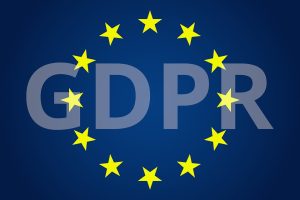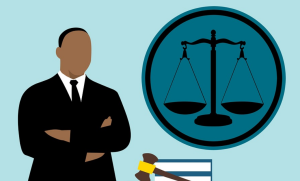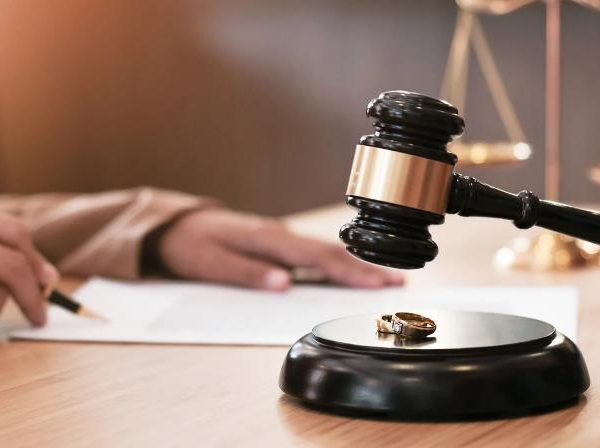
GDPR Lawyer – The Data Protection Law Experts
Data protection law is a fickle beast. It’s constantly evolving, with new regulations and laws enacted by various countries and organizations. There are data protection laws in place today that were created decades ago. The general data protection regulation (GDPR) of 2018 is one such law, which came into effect in May of this year. This blog will cover personal data under the GDPR, data protection lawyers, risks of data breaches, and ways to keep your business compliant with data protection regulations. Let’s discuss the GDPR and the data protection law and system experts.
What is GDPR?

The General Data Protection Regulation (GDPR) is a regulation that came into effect on May 25, 2018. It replaces the 1995 EU data protection regulation and regulates the handling of personal data by controllers and processors within the European Union (EU).
Entities subject to the GDPR include small businesses, organizations, and public bodies. The GDPR applies to any controller or processor that processes personal data on behalf of an entity within the EU.
The legal way and basis for compliance with the GDPR is consent.
The regulation requires transparency around personal data processing practices and protection of personal data against unauthorised access, use, or disclosure. The regulation also mandates clear personal data policies and specific obligations on collecting, using, and disclosing personal data.
In general, personal data must be processed in accordance with legal business requirements and subject to appropriate safeguards and limitations regarding its collection, use, access, and disclosure.
The regulation also provides for fines of up to 4% of annual global turnover for non-compliance.
What is Personal Data under GDPR?
Personal data is any information relating to an individual that can be used to identify them. Under the General Data Protection Regulation (GDPR), personal data must be processed transparently, fair, and lawfully. This includes processing personal data in compliance with the relevant legal obligations and data protection principles.
Personal data must be relevant to the purposes for processing it. It must be accurate and up-to-date. Personal data must be kept only as long as necessary to process it.
Personal data must be protected from unauthorised access, use, or disclosure. Personal data should not be subject to automated decision-making without human intervention.
Additionally, personal data should not be transferred without the consent of the individual(s) whose personal data is being processed.
Lastly, personal data should not be processed in ways that are inconsistent with the GDPR’s principles and provisions.
What are the rights of individuals subject to data processing under the GDPR?
Individuals have a number of rights with regard to their personal data under the GDPR, including:
- The right to access personal data that has been processed about them. This includes receiving a copy of the data and requiring that it be corrected if it is inaccurate.
- The right to have personal data erased or destroyed where there is no legal basis for its retention.
- The right not to be subject at any time to processes incompatible with this Regulation or intended to produce data that is not accurate, up-to-date, or complete.
- The right to object to the processing of personal data where it is subject to systematic and large-scale profiling.
What measures must processors take in order to protect the privacy of individuals?

Processors must take appropriate measures to protect the privacy of individuals by:
- Ensuring that personal data is processed in a manner that protects its accuracy, confidentiality, and integrity.
- Limiting access to personal data using security procedures and technologies.
- Notifying individuals of their right to access personal data and the steps they need to take in order to exercise that right.
- Maintaining adequate documentation of processing activities.
What is GDPR Compliance?
Organisations must comply with the general data protection regulation (‘GDPR’) before May 25, 2018. This regulation ensures that the personal data of individuals is processed in a legal and fair manner. The general data protection regulation is vital as it validates and strengthens all EU citizens’ individual data protection rights. However, businesses must ensure compliance with the regulation to avoid facing penalties or issues with data protection authority.
Key requirements of GDPR compliance include complying with the general data protection regulation of the EU, providing transparency to data subjects regarding processing activities and sharing information regarding data protection policies and practices etc. Businesses should also develop data protection policies and subject privacy impact assessments for new projects. Now that the regulation is about to come into effect, businesses must develop a data protection strategy through which they can draft their plans for compliance.
Businesses can use personal data for any purpose under GDPR. Still, they must obtain explicit consent from data subjects for using personal information in any manner other than specified by law. Besides, businesses can’t rely on their current processes and procedures to meet data protection regulation requirements as they have been working under different regulations up until now.
Businesses should take necessary steps to comply with GDPR regulations by developing new processes and policies to handle personal data responsibly.
What is a GDPR Breach?
A GDPR breach is when the personal data you are responsible for is accessed or used unauthorizedly. This may occur in the course of carrying out your obligations under the GDPR, for example, when you process personal data negligently. If you are subject to a supervisory authority, you must notify it promptly of any breach that occurs within your group. You may be liable for damages from a breach, for example, if personal data is destroyed or not secured properly.
If you fail to comply with the GDPR, you may face criminal penalties. Under the law, personal data protection is a fundamental right. Anyone who accesses personal data unlawfully or fails to protect it adequately can be fined up to 2% of annual global turnover or €20 Million, whichever is higher.
What Data is Protected by GDPR?
The GDPR applies to any personal data that is subject to EU or national law. This includes data that a company holds on behalf of an individual, such as when you provide your name and email address in order to sign up for a newsletter.
The GDPR also covers personal data that is collected through the use of cookies, beacons, and other tracking technologies. It covers all personal data – whether it’s information about your health or preferences, political opinions or financial department details – even if it’s just momentarily stored on someone’s device.
What is a Subject Access Request GDPR?
- A subject access request (SAR) is a request made by a subject (individual or company) to inspect, copy, or obtain data held by a controller (an organization that processes personal data).
- Under the GDPR, controllers must provide data subjects with access to the personal data they have provided. This includes access via electronic means, such as via a computer, tablet, or smartphone.
- If a subject requests access to personal data, the controller must provide it without delay and without a fee unless the request is manifestly unfounded or excessive.
A controller must respond to a SAR within one month unless there are good grounds for delaying the response.
If the controller decides not to produce the data, it must provide reasons for its decision.
In addition to access rights under the GDPR, data subjects may also have additional rights under other applicable laws, such as regarding privacy and freedom of expression.
The GDPR requires controllers to appoint a data protection officer (‘DPO’). The DPO is responsible for ensuring that the GDPR is being complied with.
This includes providing information and advice on data protection matters and advising on compliance with legal requirements relating to personal data sharing and handling.
What Does a GDPR Lawyer Do?

A data protection lawyer is a legal professional who is trained and proficient in data protection law. They are specially tasked with helping clients understand and comply with the new GDPR (General Data Protection Regulation) regulation, which comes into effect on May 25, 2018.
A data protection solicitor can help you understand how to protect personal data under the law and provide advice on how to avoid common data protection pitfalls. They can also help you file a complaint if you believe your rights have been violated. A data protection lawyer can represent you in court if necessary.
Looking to hire a data protection solicitor? You can use a reputable law firm or consult an attorney online. A good data protection lawyer will have the knowledge and experience to guide you through the legal process and provide sound legal advice.
Brexit and GDPR
The General Data Protection Regulation (GDPR) is a new EU data protection law that came into effect on May 25, 2018. It intends to strengthen data protection rules and enforce compliance across the EU. Law firms and organizations concerned with data protection compliance should stay tuned for any developments that may arise due to Brexit, as the GDPR will not apply to the UK after it exits the union on March 29, 2019.
As a result of Brexit, many people are worried about how their personal data will be secured and handled after Brexit. The general consensus is that although there are no specific regulations yet from different governments regarding data protection post-Brexit, all companies that handle the personal data of EU citizens must follow the stringent laws of the GDPR.
The general consensus is that in the case of Brexit, personal data held by UK companies must either fall under the regulation of the EU or must be transferred to other countries’ regulation frame as per European Union’s eCommerce Directive and ePrivacy regulation.
However, there is no concrete regulation yet in this regard, and data protection authorities across various countries are still deliberating on how they go about handling privacy issues post-Brexit.
Given all this uncertainty, you may want to consult a data protection law attorney for legal advice on how to deal with privacy issues post-Brexit.
Key Risks in UK GDPR
A key risk in the UK GDPR is that data protection authorities may levy hefty fines and deductions on any organisation found to be non-compliant. This includes private limited companies that process or store personal data without valid consent, use cookies for profiling or direct marketing purposes without obtaining explicit consent from individuals, fail to appoint a Data Protection Officer (DPO), and address other compliance issues.
It is also important to remember that if an organisation processes the personal data of residents of any other member state subject to the GDPR but fails to comply with its provisions, it could be subject to enforcement actions by the relevant DPA of that state.
Companies should also be aware of the fact that data protection law attorneys may represent individuals in data privacy complaints, and these lawyers can often provide independent legal advice on how to address GDPR compliance issues.
How do GDPR Lawyers Help Businesses?
A GDPR lawyer can play an important role in helping businesses understand their data protection obligations under the regulation. They can help businesses develop data protection policies and risk assessments and ensure compliance with the law’s requirements. This can help them stay compliant and address any data protection concerns.
A GDPR solicitor has knowledge of the regulation and its nuances, which can aid businesses in building effective legal frameworks that safeguard personal data. A good understanding of the law can help businesses negotiate effectively with governments on data protection issues and represent their business in court should it be necessary.
A GDPR lawyer can also provide expert advice on a variety of data protection-related issues, such as the processing of personal data and data protection compliance measures.
GDPR Course for Lawyers
You’d be a data protection lawyer if you were aware of the General Data Protection Regulation (GDPR) and could help your clients comply with its requirements. The GDPR is a new regulation that replaces the 1995 EU data protection directive.
As a data protection lawyer, you’d be aware of all the changes that have been made to this regulation, including the stricter rules for processing personal data and increased fines for violations. Under the GDPR, all organizations that process or store the data of individuals in the EU must comply with the regulation. This includes businesses of any size, from startups and self-employed to large corporations.
You’d also be familiar with all of the provisions of the regulation, including privacy by design and personal data protection officer. You’d need to be knowledgeable about how these provisions apply to business processes, data flows, and IT systems.
In addition to being familiar with legal terms such as ‘personal data’ and ‘processing’, you’d need to understand the legal frameworks under which they operate, such as law enforcement access to personal data, e-discovery policies, risk management frameworks, and data protection compliance programs. In short, you’d need to be knowledgeable on everything related to data protection regulation and compliance.
What is the need of GDPR Lawyer?

If you are subject to the GDPR, you must take steps to protect your data. For example, if someone accesses your data without your permission, you must report this breach as soon as possible. You may also be liable for any damages suffered as a result of the breach.
If you believe that someone has access to, or is using, your personal data in a way that contravenes the GDPR, you should immediately report this to the relevant organisation. If possible, provide information about the breach (for example, an email address or IP address from which the data was accessed) and any evidence of damage caused. You may also be entitled to compensation for any damage suffered due to the breach.
A good GDPR lawyer can help you understand your legal obligations and advise on practical strategies to ensure compliance with the law.
Services offered by a GDPR Solicitor
A GDPR solicitor can provide you with legal advice on how to comply with the GDPR. A solicitor’s knowledge and experience of data protection law can help them identify your legal obligations and provide you with the guidance and support you need to act in line with the law.
A data protection solicitor can also act as a point of contact for organizations subject to the GDPR, providing general legal advice and assistance on compliance issues. A solicitor will be able to help you file a complaint if you believe that the regulation has harmed you.
A solicitor can act as an advocate in court, providing expert evidence in support of your case.
A consultant may be able to offer other services, such as representation in negotiations and dispute resolution.
The data protection lawyer should be well-versed in data protection law, offering valuable legal advice and assistance.
How personal data should be used?

Personal data must be used for the purpose for which it was collected. This ensures that personal data is used for its intended purpose and avoids any breach of personal data protection laws.
Personal data must be accurate and up-to-date. This means that personal data must be as accurate as possible and should not be outdated or stale. Personal data should not be used for any purposes other than those for which it was originally collected.
It is important to note that when the individual is to use or share any personal data, the individual has consented to its use by the organization, so organizations shouldn’t use personal data without the individual’s consent.
Personal data must be kept confidential. People have a right to privacy, and organizations are obliged to take steps to secure personal information.
Finally, personal data should not be shared without the individual’s consent. Organizations like private limited companies should obtain consent from individuals before using their personal data in any manner.
Conclusion
Data protection law aims to protect the personal data of individuals by regulating the collection, use, and disclosure of personal data by public and private organizations. The regulation also establishes data protection principles, breach notification requirements, and data protection authorities to deal with data protection issues. Legal advice is critical to ensure compliance with data protection laws and regulations like GDPR. We provide GDPR compliance training for lawyers to help them understand how personal data regulation impacts day-allows businesses in the legal field and facilitate better compliance.
FAQ – GDPR Lawyers
What Happens if You Go Against GDPR?
If you are found to have violated GDPR, then you may be subject to fines or even imprisonment. Additionally, you may be subject to restrictions on your business benefits and data access. If you have any questions about GDPR, please get in touch with a data protection lawyer.
How much is the pay for GDPR?
The pay for GDPR lawyers ranges from £2,500 to £10,000 per hour. The amount of pay typically includes a percentage of the recovered damages. Additionally, some attorneys offer a flat fee for handling all or part of the GDPR process.
What Happens if a Solicitor Breaches GDPR?
If you believe that your solicitor has breached GDPR, you should contact them immediately. Suppose the data protection solicitor is unresponsive or refuses to address your complaint. In that case, you may have the right to file a claim for damages with your regulator (the ICO, data protection officer of the firm, or data protection court).
The maximum penalty that a solicitor can face is 4% of their annual worldwide turnover or €20 million, whichever is greater. In other words, if a solicitor’s total annual worldwide turnover is €1 billion, they would be liable for a fine of €240,000.
Additionally, you may also be able to seek an injunction from the data protection officer preventing the solicitor from continuing to breach GDPR. In extreme cases, you may even have the right to take legal proceedings against the solicitor.
Has anyone been prosecuted GDPR?
Yes, as of May 25, 2018, individuals in the European Union are able to file a complaint with data protection authorities if their personal data has been mishandled. This includes companies based outside of the EU but processing the data of individuals in the EU.
Any company or sole trader who fails to obtain the consent of the individuals whose data they are processing could be subject to fines of up to 4% of their global annual revenue. If you are found to have processed personal data without the consent of the individuals involved, your company could be dissolved.
Can You Go to Jail for Breaking GDPR?

Yes, individuals who violate GDPR can face criminal penalties. These penalties can range from fines of up to 4% or €20 million (whichever is greater), or up to 2 years in prison.
If you are found to have violated GDPR, it is important to contact a data protection lawyer as soon as possible. A data protection lawyer can advise you on the best way to address your situation and protect your data.
Can you be prosecuted for breach of GDPR?
Yes, under the GDPR, you can be prosecuted for a breach of the regulation. The maximum penalty for a GDPR breach is 4% of your global annual turnover or €20 million (whichever is greater).
If you are found to have committed a GDPR breach, you may be subject to a fine, restriction of business benefits, or even imprisonment.
What is misconduct by a solicitor?
If you believe that your solicitor has engaged in misconduct, you can report this to the Queensland Solicitors Disciplinary Board. The Board will then investigate the matter and may impose penalties on the solicitor. Misconduct by a solicitor can include any conduct that undermines the public’s trust in the legal profession.
On what grounds can you complain about a solicitor?

If you are unhappy with the services of a solicitor, then you can usually complain about them in one of two ways.
The first way is to contact the solicitor and explain your concerns. If the solicitor does not adhere to GDPR guidelines, they may be more willing to listen and resolve the issue.
The second way to complain about a solicitor is by providing details of the situation in written form. This will help to document your case and make it easier for the solicitor to respond.
If you decide to make a complaint, be sure to do so in writing and provide as many details as possible so that the matter can be resolved as swiftly as possible.
What happens if a solicitor breaches confidentiality?
If a solicitor breaches confidentiality, the client has the right to terminate the relationship. The client can also take legal action against the solicitor, including filing a complaint with the Law Society of Upper Canada or the Bar Standards Board. In some cases, the solicitor could be liable for damages, including financial compensation and lost profits.
What are the four types of misconduct?
The four types of misconduct under GDPR are:
- Data processing without consent
- Unlawful data processing
- Failing to protect personal data
- Data sharing without consent
Can you sue a solicitor for lying?
Yes, it is possible to sue a solicitor for lying under the GDPR. Under the GDPR, you have the right to information and to be treated fairly by your solicitors. If you believe your solicitor has lied to you, you can take legal action by providing evidence of the lie. If you are successful in taking legal action against the solicitor, you may be entitled to damages like fines and deductions from the solicitor.







